Alex Robinson has had a long and illustrious career in comics, writing and drawing a number of critically acclaimed graphic novels, including Box Office Poison (1996), Tricked (2006), Lower Regions (2007), Too Cool To Be Forgotten (2008), and Our Expanding Universe (2015). He’s won an Eisner, an Ignatz, a Harvey, and a Prix du Premier Album award at Angouleme for his witty, heartfelt, slice-of-life books.
In recent years, however, he has also become an extremely successful podcaster. As the co-host of the ground-breaking Star Wars Minute, Robinson helped to invent the “movies by the minute” podcast genre. Alex and his partner Pete Bonavita “analyze, scrutinize and celebrate the STAR WARS saga one minute at a time” to hilarious effect, ruminating on everything great, terrible and inexplicable in Lucas’ epic series (and its rabid fan community). Over the last five years, they have made their way through both the original trilogy and the prequel trilogy, producing hundreds of hours of content. They are currently on hiatus but will tackle the Disney-era films in the coming months and years. Robinson and Bonavita, himself a former comic book retailer at Forbidden Planet in New York, have built a devoted fan following and generate over $5000 a month in Patreon donations. Star Wars Minute has also inspired dozens of “by the minute” podcasts devoted to a shockingly wide variety of movies, including The Godfather Minute that Robinson hosts with his brother Andy Robinson.
Bruce Lidl: How do you balance your time between comics and podcasting these days? Were you able to work on Our Expanding Universe at the same time you were recording Star Wars Minute episodes or did you need distance between the two endeavors?
Alex Robinson: Since moving to Portland two years ago we’ve tended to record the show in three or four big chunks in LA and NYC, doing several week’s worth of shows at a time, so recording isn’t too much of a conflict. The bigger challenge, actually, is balancing my art-related duties for the show (mostly Patreon drawings). I’ve always been a pretty monogamous artist, working on one project at a time, and I find it hard to switch gears. It always takes me a bit to get back into the groove of my own stuff and by the time I finally get there it’s time to stop and do more Star Wars drawings. But I realize that I’m lucky to be doing any of this stuff so I’m not complaining.
I don’t recall SWM being a big conflict when I was finishing up Our Expanding Universe.
Lidl: Has podcasting become your primary job? Do the financial rewards of podcasting prioritize that activity over making comics?
Robinson: Yeah, they’ve kind of switched places between being a hobby and a job. When my most recent book, Our Expanding Universe, came out it didn’t sell very much and I was already kind of at a crossroads in my comics work. My books had always been very story-focused and I wanted to spend more time and energy doing the art, which I was finding more satisfying, so the podcast’s success gave me a good excuse to take my time. I think it’s paid off, since I’m really enjoying working on my new book and think my art has improved, but the irony is that it will probably not be published in my lifetime.
Lidl: I was aware of your comics career before I became a Star Wars Minute fan, but I have gone back and read all your comic books since then. Has your podcasting celebrity brought new fans to your comic? Is there much crossover from one fan group to the other?
Robinson: First off, thanks for reading them! I’m not sure what impact the podcast has had. Of course you’re always hoping it will bring in a whole new audience but I haven’t noticed a big uptick. It’s entirely possible that people who like what I do on the show aren’t really interested in my comics which are mostly about people sitting around diners talking about their feelings. And that’s fine. I’m also a terrible salesperson for my own work, as you might notice, so I probably didn’t promote the most recent book as much as I could have.
The funny thing is that my first book, Box Office Poison, included dozens of references to Star Wars but that was in the golden age before the internet. I was including them for my own pleasure, hoping that a few nerds might notice.
Lidl: The genre of podcasting that you and Pete “The Retailer” Bonavita pioneered, the “movies by minute” style occupies an interesting space between creators and fan communities. How do you situate yourself, as a long-time creator but also now as a kind of professional fan?
Robinson: I don’t read reviews of any of my work, podcasting or comics, good or bad. It just makes me too neurotic so at a certain point after we started the podcast I started to wonder if it wasn’t a bit hypocritical. I would imagine meeting George Lucas somehow and being embarrassed that my job depends on being extremely critical of his works. The idea of someone going through one of my book with the same intensity and pointing out the mistakes and poorly executed moments–of which there are plenty–is horrifying. I know we’re doing it out of love, or a kind of love, anyway. I rationalize it by saying that he’ll most likely live out his life never even being aware of our existence and besides, he’s super rich, right? Right??
Lidl: The meaning of fandom has often been a theme in your comics, most clearly in Box Office Poison and Tricked. Your depiction of fans in those titles is ambivalent, I would argue. Has your attitude towards fans changed since becoming so deeply embedded in fan culture?
Robinson: I would argue that we aren’t really that embedded in fan culture. Pete and I have always described ourselves as “casual hardcore fans.” We love the movies and some of the ancillary material but don’t really feel the need to read any of the books and whatnot. We’re a Star Wars podcast for people who aren’t really deep into fandom. Am I protesting too much?
Fandom is a very weird thing. The rise of the internet has definitely changed things and there’s obviously a very loud contingent of Star Wars fans who think their opinions deserve to be heard. I’m not the first person to make this observation but why don’t the people who are so enraged about SW just move on to something else? I love the Planet of the Apes movies but thought the last two were boring. I’ll probably only watch any new ones if I catch them on cable. The end. I don’t harass the actors on twitter or start a petition to have a certain actor cast as Zira. On the one hand I can understand it because the outrage is the thing they all have in common and it becomes an echo chamber. On the other hand, on the bigger, more important hand, channel your energy into something more productive. Start a band.
Of course, most fans are harmless people just looking to have fun and enjoy something.
Lidl: With such a commitment of your time and creativity to the Star Wars franchise, do you feel yourself to be attached to the franchise in some way? Are your future revenues from Star Wars podcasting dependent on Disney maintaining the franchise financially? And does that affect your attitude to the films?
Robinson: I feel attached to the franchise in the same way the flea that lives on the barnacle feels attached to the whale. Which is good, in a way, because I feel like if the show became super popular then Lucasfilm would send us a cease and desist and start their own version of the show hosted by Chris Hardwick and Kevin Smith.
When we started the podcast we had no idea that we would someday make any money from it, let alone any sort of steady income (of course when we started we figured we’d get through the first movie and be done). I think the rubicon was when we finished Return of the Jedi and had to decide whether to move on to the prequels, of which neither of us were big fans. We decided we were still having enough fun to keep going.
Now we’re about the start the Disney era which is new territory on many levels. For one thing, we’re now talking about movies that will have come out only three years prior, as opposed to having 30 years of comics, novels, card & video games to use as source material. Disney has also been very tight lipped about the making of these movies so we don’t have that to draw on. On a more personal level, I’m already starting to feel the movies drifting away from “my” Star Wars, and I’m seeing these movies as a cynical adult as opposed to the 6 year-old I was when I first saw Star Wars in the theater. How far can we move from the original trilogy and still keep my interest? Time will tell. I “joke” with Pete my co-host that his children will one day take over for us.
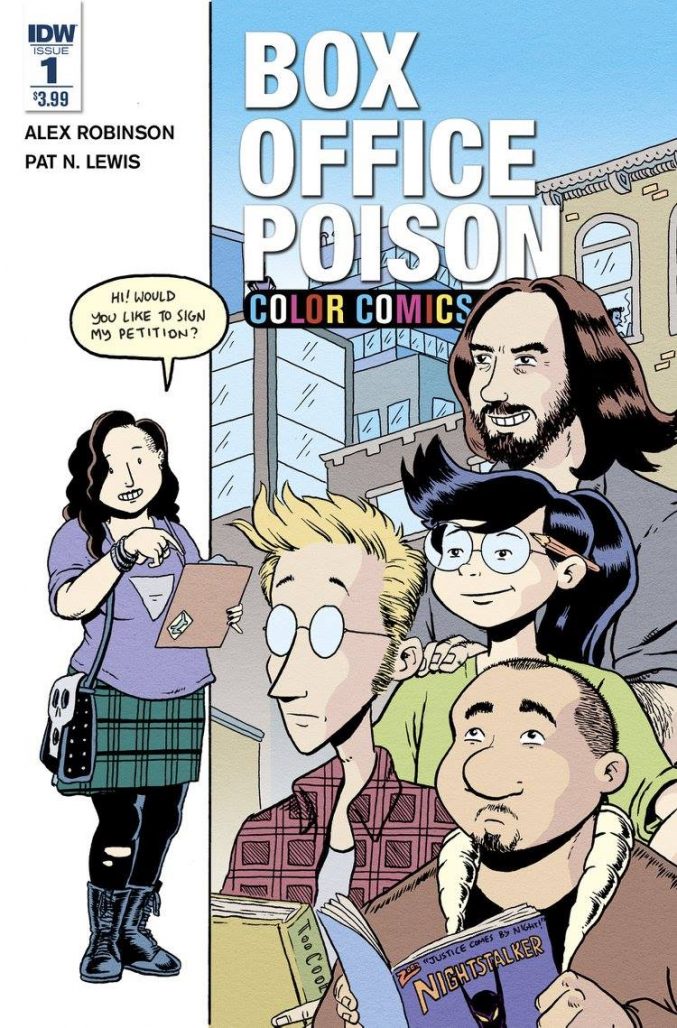
Robinson: It hasn’t really changed my attitude about making comics. If anything I probably value the fact that I’m the only creative voice I have to listen to even more (one of the things that first drew [haha] me to comics, was that one person could do it all without any sort of compromise). Not that I don’t enjoy collaborating–I’ve actually enjoyed that part of the show. The fact that I get to crack silly jokes with comedians whose work I love is terrific.
I think comics being both labor intensive and paying very poorly will always limit my desire to collaborate, which is sad because I’ve generally enjoyed the times I’ve done it. Also, 90% of the time people want to collaborate with me it’s with me as the writer which I’m less interested in. I’m much more interested in inking someone else’s work, or doing pencils for someone else to ink.
Lidl: Your financial model for podcasts seems so much more in line with present day audiences, with a wide variety of freemium options available for every level of fan appreciation. Are there lessons here for Alex Robinson the comic creator? Can you apply new business models to your comic publishing?
Robinson: Haha, Alex the comic creator is completely in the wilderness when it comes to the business end of things. When I finished Our Expanding Universe I felt like Rip Van Winkle. I was excited and ready to promote the book but the entire industry had changed and I had no idea who the tastemakers were, or where to send copies for review or which shows to go to or any of that stuff I used to do. Plus, my book came out at Christmastime which is the worst time to release a graphic novel in an industry centered around summertime promotion. It certainly didn’t help that I’d taken so long to finish it that any audience I’d built up had moved on.
So I’m working on this new book but I’m not even going to think about the publishing end of things until it’s ready to go. I’m really enjoying working on it and I’m pleased with the results. If all goes according to plan it will wind up being my longest book so it will be a long time. Long time.
Lidl: Looking back on your career, it has surely gone in unexpected directions. It would have sounded quite fantastical to imagine yourself as a professional “podcaster” twenty years ago. In your book Too Cool To Be Forgotten, you examined what wisdom age provides. In that spirit, what would Alex Robinson of 2017 say to the 1997 version of him about embarking on a career in comics?
Robinson: He’d keep his trap shut. When I look back at Box Office Poison, my first book, aside from whatever artistic qualities it does or doesn’t have, I’m impressed at that kid’s enthusiasm. He made it! He finally found a publisher and he’s clearly putting everything he can into the book and trying everything in comics he wanted to try. And everything pretty much worked out. If I had any advice it would be more non-comics specific stuff–lighten up, try to enjoy life more, love your friends and miss them when they go. Eat better.
Lidl: The most explicit overlap between your comics work and Star Wars that I am aware of is your “Con Artists” entry in the 2014 SubCultures anthology. Are you interested in writing or drawing an official Star Wars comic? If so, what would it be about? Or would you prefer to do something in the world of The Godfather? Or The Beatles [Robinson and Bonavita previously hosted a Beatles podcast called AlphaBeatical]?
Robinson: I would love to! I recently read Ed Piskor’s X-Men book and it made me want to do a similar thing with Star Wars–an overview of the whole story told in a fun but reverent way. Pete and I also talked about pitching a Star Wars Minute comic, with each issue covering one minute of the film, with expanded scenes, storylines, etc. So it would run 120 issues or however many minutes long the movie is (see? I don’t even know! Casual hardcore!). But I’m useless when it comes to pitching ideas to publishers and working with editors. I normally work very loosely, having a rough outline of what happens in a story and making up the details as I go, which isn’t how it usually works, especially when you’re dealing with licensed characters. I also know my work is too “cartoony” for mainstream comics.
The idea of a Beatles comic has come up a few times. Part of me really likes the idea, since I’ve spent a lot of time, probably too much time, thinking about the Beatles as characters. I think if that was ever going to happen I would limit myself to writing since after Tricked I never want to have to draw guitars again. It would be interesting writing for someone else to draw. But the effort it would take to get such a project off the ground is greater than my desire or ability to do it.
Lidl: Finally, can you share any information on your next comic project?
Robinson: As I mentioned, after completing OEU I wanted to rethink how I approached doing comics and I really wanted to stretch myself as an artist. I’d recently gotten into Jack Kirby’s Fourth World comics and I thought doing something like that would cut down on the amount of scenes with people sitting around talking. They could still talk, but now it would be while they were fighting giant monsters or past weird landscapes. I spent a lot of time figuring out the overall trajectory of the story and building up elaborate world-building type info, way more than I have with any book previously. Anyway, the working title is “Cosmic Saga” and it centers around Gaia, a member of the royal family who is trying to figure out where she came from. If I include everything in it that I plan to it will probably be the longest book I’ve done, so I might release it in three or four volumes as they’re completed. I don’t have a deal with any publisher as of yet but like I said, I’m not really worrying about that part now. I also am designing it with color in mind, though if I wind up having to publish it myself I might need to rethink that.



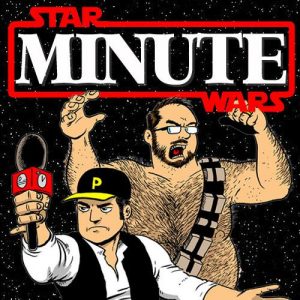
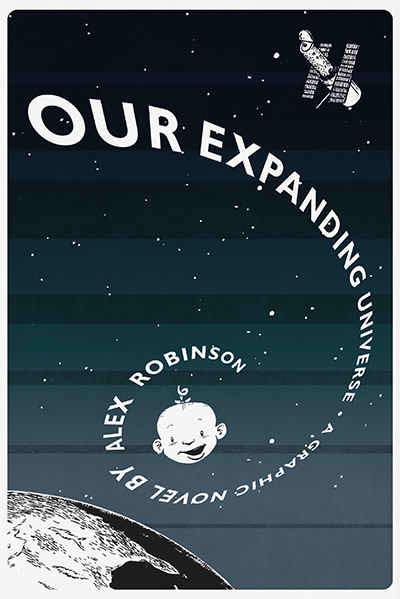
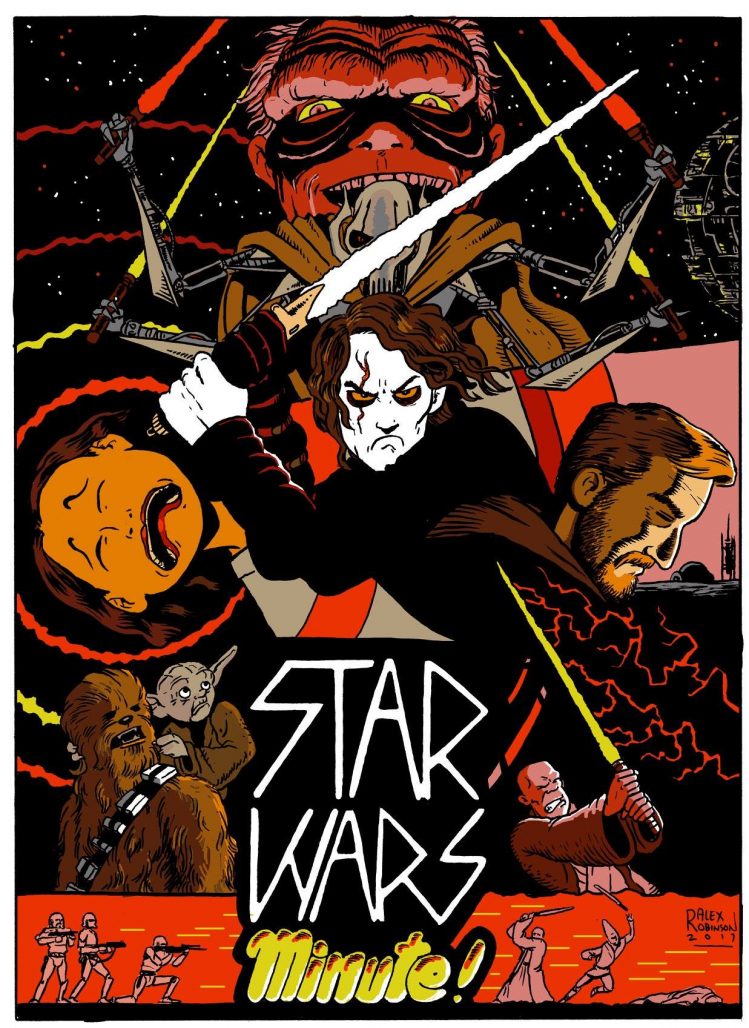
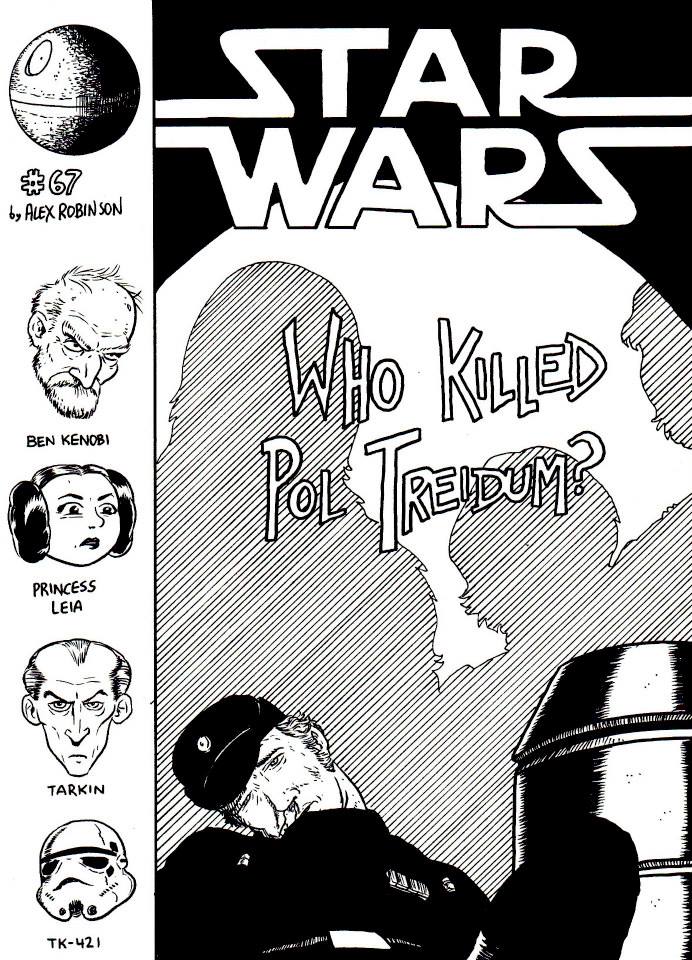

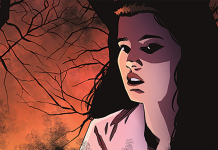




” I’m not the first person to make this observation but why don’t the people who are so enraged about SW just move on to something else? … (C)hannel your energy into something more productive. Start a band.”
I feel the same way about fans who post, week after week, about how much they hate the current Marvel and DC output. If you suggest they “move on to something else,” they accuse you of trying to shut them up and run them off. No, I’m just saying that the world doesn’t begin and end with superhero pamphlets, and there are plenty of alternatives out there.
But they don’t want to hear that. They just want to vent.
“They just want to vent.”
Such inability to understand or empathize with your fellow humans beings is pretty amazing. Every broken up with a girl/guy? Did you immediately forget everything about them and move on to another person?
A lot of the folks who complain about Marvel or DC started reading these books when they were kids, kept on reading them for 10, 20, 30 or more years, and have spent enormous amounts of time and money on them. And in at least some of the cases, the people complaining are the reason why Marvel and DC comics still exist because they were the ones who kept buying them when the industry nearly collapsed in the 90s.
So when they see this thing they’ve loved, in many cases, much of their lives turned into something they hate, they absolutely want to vent because THEY ACTUALLY CARE. And if you don’t like reading their comments, here’s a crazy suggestion for you. STOP READING THEM.
Mike
Another childish tantrum from Mike. They’re weekly events.
“A lot of the folks who complain about Marvel or DC started reading these books when they were kids, kept on reading them for 10, 20, 30 or more years, and have spent enormous amounts of time and money on them.”
Too bad they wasted so much time and money on something they outgrew long ago. Now all they do is gripe because today’s comics aren’t like the ones from their cherished childhoods. The saddest ones complain that “diversity” and “political correctness” are “killing comics.” Those folks probably don’t get out of their houses (or their parents’ basements) too often.
A lot of people on this board have advised those folks to move on to something else. They should take up a new hobby, instead of whining about Marvel and DC all day. Nothing is more pathetic than a person over the age of 40 who is still obsessed with funnybook heroes. They’re apparently not mentally mature enough to read indie/alternative comics, or explore classic comics that don’t involve capes and masks.
So, like Mike, they just vent and have nothing positive to say.
Did he actually use the phrase “tastemakers” ?
*rolls eyes*
Did he actually write the phrase *rolls eyes*?
I can hear Alex’s Robinson’s voice saying the word ‘tastemakers’ and I’m afraid his delicious ironical tone hasn’t made it to the page.
I am one of those who has read comic books for over 50 years. There are things I liked through the decades from the big two. I was more Marvel than DC when I was younger, now that has reversed for some reason. The other thing is that I always read independent books. There were things the big two did not do and the independents did. I love comic books and have never considered my time and money spent a waste of time. What happens with a lot of older people is that they want it to be like when they were younger because they are nostalgic and miss being younger. That is completely normal. Should they act with a little more decorum when they comment on comic books that do not fit in the narrow category they want? Absolutely. And George? If you could not refer to older people who are obsessed with something ‘pathetic’ that might be a step in the right direction. There is nothing wrong with being passionate. Passion is a wonderful thing and it charges your batteries like nothing else in the world. But don;t be mean. No one likes a bully, except other bullies. I find it best to remember the words of a great man who once said;
“No matter where you go, there you are.”
Peace.
If people want their comics or films to reflect (their idea of) changed times, why don’t they pick up on new creations instead of ruining old ones?
“If people want their comics or films to reflect (their idea of) changed times, why don’t they pick up on new creations instead of ruining old ones?”
Because fans don’t want new characters. They only buy comics about “legacy” characters that were created decades ago.
Douglas, there comes a time when being nice and polite with certain fanboys just doesn’t cut it anymore, as Bill Sienkiewicz could tell you.
https://www.facebook.com/bill.sienkiewicz.18/posts/1783747811661967
George, if the nice and polite isn’t working I do find the walking away method pretty effective. I met Bill Sienkiewicz one of my favorite artists of all time at Motor City Comic Con a few years ago. He was an asshat. Probably not the best example.
“George, if the nice and polite isn’t working I do find the walking away method pretty effective.”
So you’d rather walk away from misogynist alt-right trolls, and let them take over fandom, instead of talking back to them?
“I met Bill Sienkiewicz one of my favorite artists of all time at Motor City Comic Con a few years ago. He was an asshat.”
How do we know you didn’t act like an asshat?
Comments are closed.